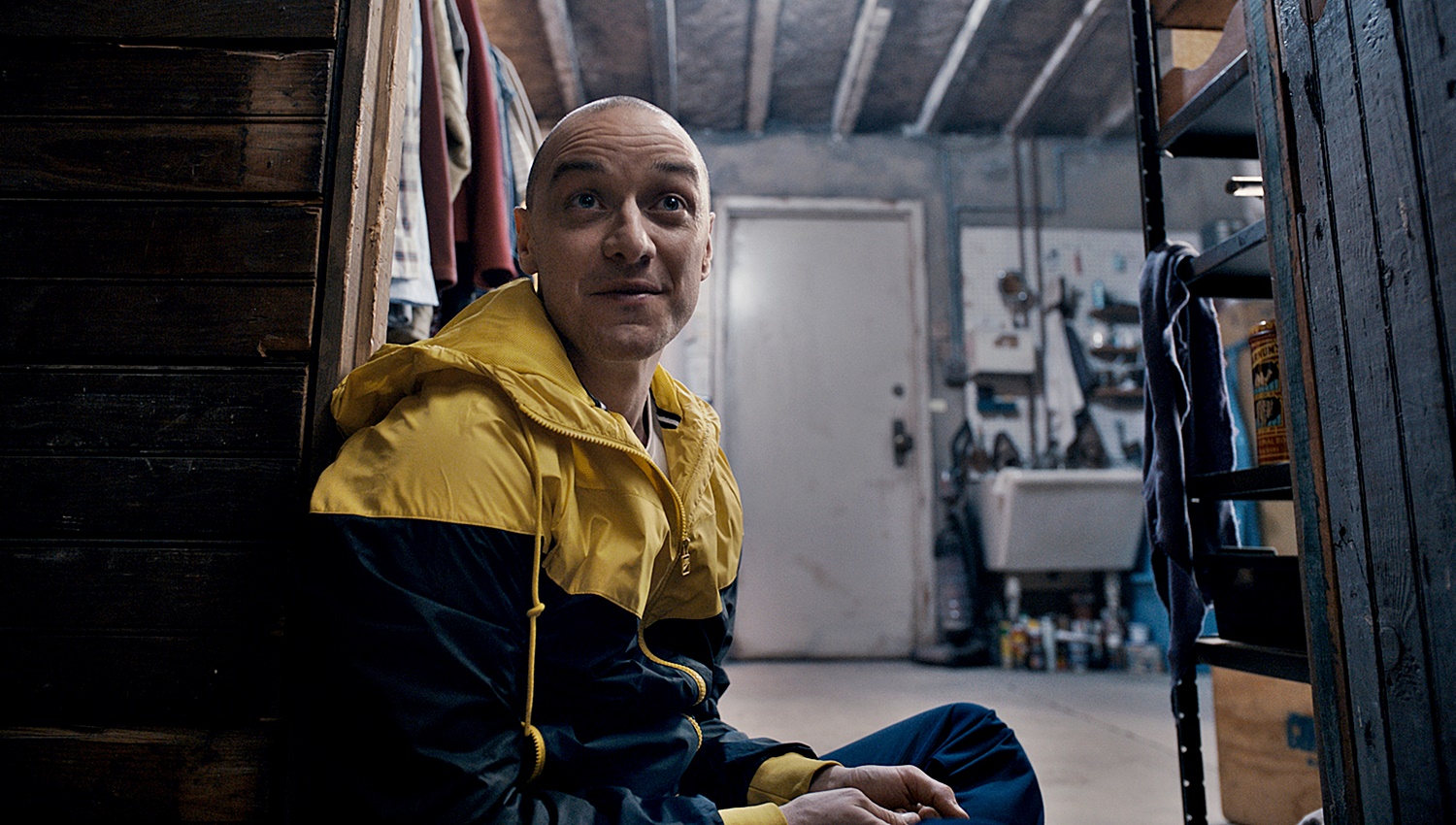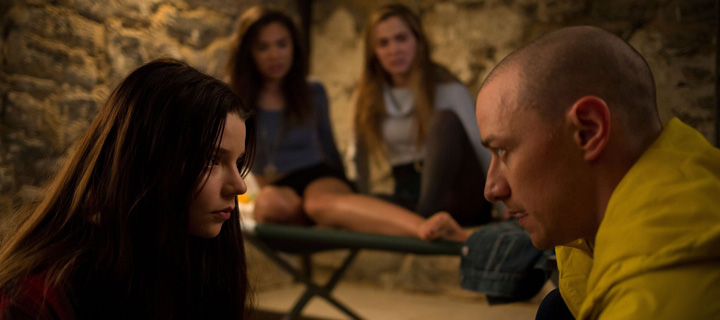
Split
Dustin Chase
The one element of Split that should have worked above everything else was James McAvoy’s multiple personality performance. Writer/director M. Night Shyamalan returns after mediocre success with The Visit (2015), claiming Split was his most difficult shoot to date. The difficulty seems to be inherent as Shyamalan introduces too many components that detract from McAvoy’s opportunity to really get inside this tormented character. Shyamalan’s formula for Split is like a kidney pie, using any and all ingredients at his disposal, throwing them together, and hoping they bake up nicely. Split lands somewhere between frustration and forgettable.
“He’s not well,” a voice behind the door says. Dr. Karen Fletcher (Betty Buckley) has been treating Kevin Crumb (McAvoy) for some time. Her concern for his well-being conflicts with her interest in studying his dissociative identity disorder. 23 personalities she has met and named so far, but recent talk of a beast has the elderly doctor more worried than ever. Kevin, under the guise of Barry, Daniel, Hedwig, and Patricia, kidnaps three young girls, holding them prisoner while each personality has a chance to interact. The misfit of the high school girls, Casey (Anya Taylor-Joy), is calmer and more understanding of her dangerous situation. She assesses the varying personalities and befriends the 9-year-old Hedwig personality, which she thinks will be her best means of escape.
Unable to engage the audience beyond simply finding out what happens next.
Split ironically lacks the same division of focus that Kevin does to accomplish anything. Despite being his longest-running film, Shyamalan divides the plot into three narratives, none of them getting the time needed to comprehensively make sense of who these people are and explain their actions. That decision dilutes the amount of development given to McAvoy’s performance, which, in the end, doesn’t seem too different from his work in Filth (2013). With the 23 personalities, Dr. Fletcher’s research, Casey’s nightmarish past, and the kidnapping at hand, this suspense thriller is stretched too thin. If that wasn’t enough, the “more is more” director throws one more twist in after the credits to break the camel’s back.
Everyone has a different opinion of Shyamalan’s work, especially the films following his Oscar-nominated thriller The Sixth Sense. For decades, he’s worked persistently to recapture the world’s interest like he did back in 1999, but the Indian-American filmmakers can’t break out of the genre work he loves so much. I’ve called him a one-hit wonder, but perhaps he works best when given a smaller budget and less freedom. I found Split unable to engage the audience beyond simply discovering what happens next in a horror movie. The psychology he dabbles with feels both misunderstood and misrepresented in a script that bites off more than he can chew as a director.
Final Thought
As usual, Shyamalan is the films biggest roadblock.

